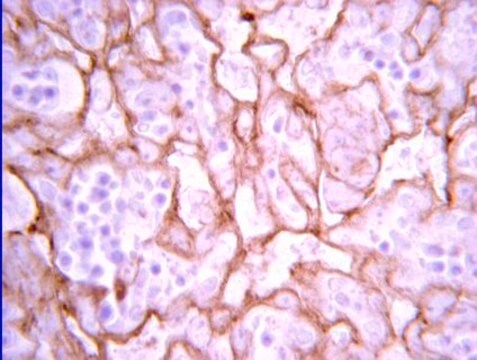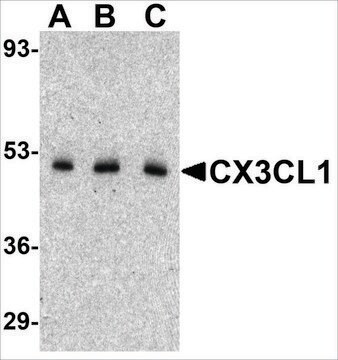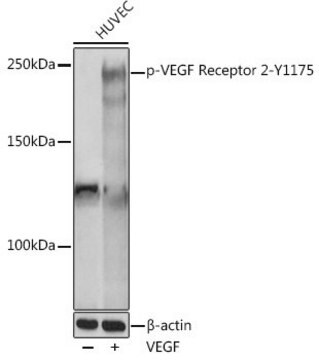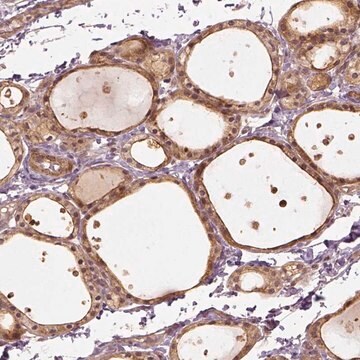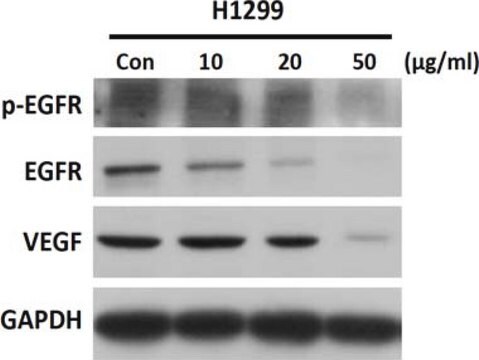V1014
Anti-Vascular Endothelial Growth Factor Receptor 2 antibody produced in goat
affinity isolated antibody, lyophilized powder
Synonyme(s) :
Anti-Flk-1, Anti-VEGF R2
About This Item
Produits recommandés
Source biologique
goat
Niveau de qualité
Conjugué
unconjugated
Forme d'anticorps
affinity isolated antibody
Type de produit anticorps
primary antibodies
Clone
polyclonal
Forme
lyophilized powder
Espèces réactives
mouse
Technique(s)
flow cytometry: 3-10 μg/mL (106 cells)
immunohistochemistry: 5-15 μg/mL using cells and tissues
neutralization: suitable
western blot: 0.1-0.2 μg/mL
Numéro d'accès UniProt
Température de stockage
−20°C
Modification post-traductionnelle de la cible
unmodified
Informations sur le gène
mouse ... Kdr(16542)
Description générale
Anti-Vascular Endothelial Growth Factor Receptor-2 recognizes mouse VEGF R2.
Spécificité
Immunogène
Application
Forme physique
Clause de non-responsabilité
Vous ne trouvez pas le bon produit ?
Essayez notre Outil de sélection de produits.
Code de la classe de stockage
11 - Combustible Solids
Classe de danger pour l'eau (WGK)
WGK 1
Point d'éclair (°F)
Not applicable
Point d'éclair (°C)
Not applicable
Équipement de protection individuelle
Eyeshields, Gloves, type N95 (US)
Certificats d'analyse (COA)
Recherchez un Certificats d'analyse (COA) en saisissant le numéro de lot du produit. Les numéros de lot figurent sur l'étiquette du produit après les mots "Lot" ou "Batch".
Déjà en possession de ce produit ?
Retrouvez la documentation relative aux produits que vous avez récemment achetés dans la Bibliothèque de documents.
Articles
Cancer stem cell media, spheroid plates and cancer stem cell markers to culture and characterize CSC populations.
Notre équipe de scientifiques dispose d'une expérience dans tous les secteurs de la recherche, notamment en sciences de la vie, science des matériaux, synthèse chimique, chromatographie, analyse et dans de nombreux autres domaines..
Contacter notre Service technique
